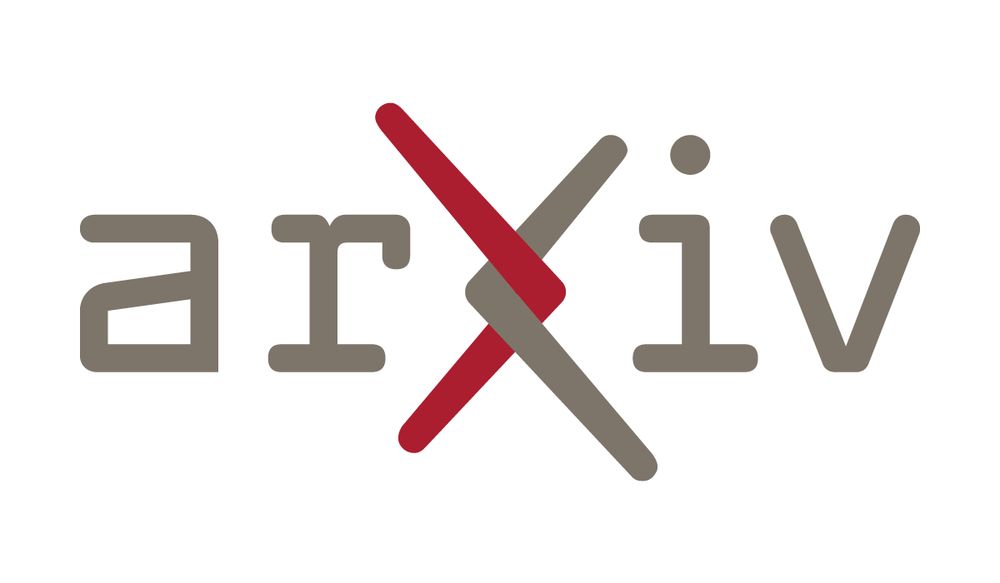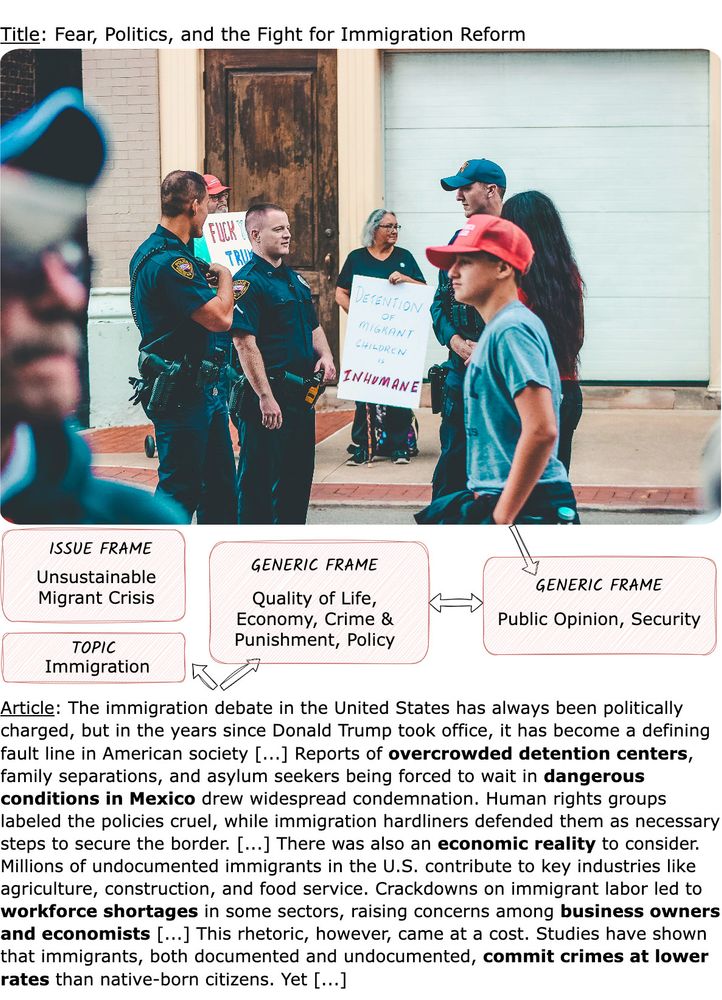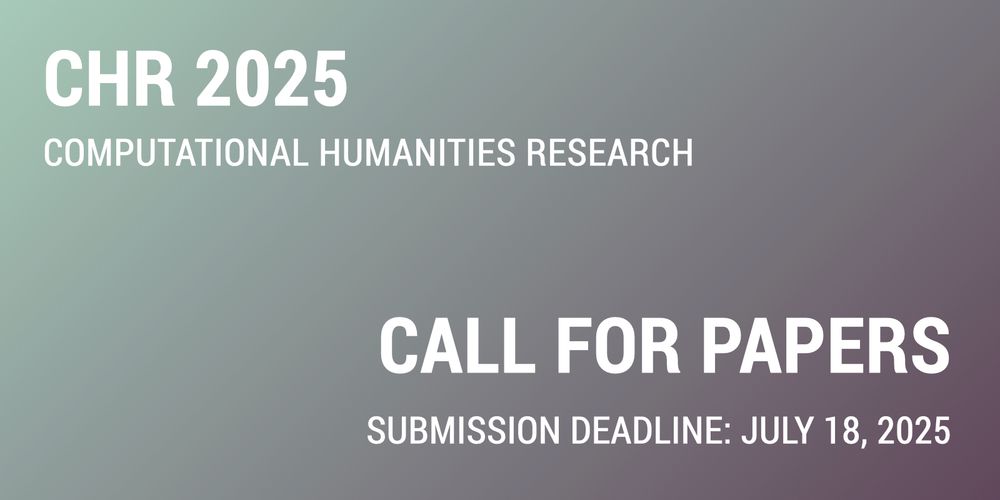
I study French popular fiction (1860–1930) using quantitative and network-based approaches.
https://jeanbarre.eu/

Our new paper, accepted for #CHR2025 combines literary history and computational modeling to trace how the figure of the detective evolves across 150 years of French fiction.
arxiv.org/pdf/2511.00627
Topics of interest:
*️⃣AI and cultural datasets
*️⃣Theory-driven humanities research
*️⃣Document-based modelling of historical and social processes
*️⃣Cultural analytics
👉 c2s.sciencesconf.org
You like challenges ?
Well, we open a competition for ATR/OCR of medieval manuscripts, in cross-lingual & diachronic settings for the Latin script.
📆 20/01 Registration
📆 21/03 Test set released
📆 3/04 Deadline for results
Link cmmhwr26.inria.fr
You like challenges ?
Well, we open a competition for ATR/OCR of medieval manuscripts, in cross-lingual & diachronic settings for the Latin script.
📆 20/01 Registration
📆 21/03 Test set released
📆 3/04 Deadline for results
Link cmmhwr26.inria.fr

alix-tz.github.io/phd/posts/025/
alix-tz.github.io/phd/posts/025/
Visser Solissa, van Cranenburgh & @fpianz.bsky.social present a model for detecting syuzhet—the ordering and disclosure of events that shape a narrative—and formalize event annotation in fiction across multiple languages.
#CCLS25 #ComputationalNarratology

Visser Solissa, van Cranenburgh & @fpianz.bsky.social present a model for detecting syuzhet—the ordering and disclosure of events that shape a narrative—and formalize event annotation in fiction across multiple languages.
#CCLS25 #ComputationalNarratology
tagging @tpoibeau.bsky.social + we need to bring Antoine Mazière around here

tagging @tpoibeau.bsky.social + we need to bring Antoine Mazière around here
97 papers, ~1600 pages of computational humanities 🔥 Now published via the new Anthology of Computers and the Humanities, with DOIs for every paper.
🔗 anthology.ach.org/volumes/vol0...
And don’t forget: registration closes tomorrow (20 Nov)!

97 papers, ~1600 pages of computational humanities 🔥 Now published via the new Anthology of Computers and the Humanities, with DOIs for every paper.
🔗 anthology.ach.org/volumes/vol0...
And don’t forget: registration closes tomorrow (20 Nov)!
Proceedings are coming soon as well. Don’t forget: registration closes on 20 November! #computationalhumanitiesresearch

Proceedings are coming soon as well. Don’t forget: registration closes on 20 November! #computationalhumanitiesresearch
Our new paper, accepted for #CHR2025 combines literary history and computational modeling to trace how the figure of the detective evolves across 150 years of French fiction.
arxiv.org/pdf/2511.00627

Our new paper, accepted for #CHR2025 combines literary history and computational modeling to trace how the figure of the detective evolves across 150 years of French fiction.
arxiv.org/pdf/2511.00627

Our new paper, accepted for #CHR2025 combines literary history and computational modeling to trace how the figure of the detective evolves across 150 years of French fiction.
arxiv.org/pdf/2511.00627

Our new paper, accepted for #CHR2025 combines literary history and computational modeling to trace how the figure of the detective evolves across 150 years of French fiction.
arxiv.org/pdf/2511.00627
It discusses three measures of #keyness (or #distinctiveness) when applied to #subgenres of the #French #novel.
The twist is that we perform a #qualitative #evaluation of the measures by relating each list […]
[Original post on fedihum.org]

It discusses three measures of #keyness (or #distinctiveness) when applied to #subgenres of the #French #novel.
The twist is that we perform a #qualitative #evaluation of the measures by relating each list […]
[Original post on fedihum.org]
📚 2.5bn tokens of mostly Latin and French texts
🕰️ 800→1600 CE
📜 23k manuscripts
🖥️ 18k on the reading interface: comma.inria.fr
🔍 Paper: inria.hal.science/hal-05299220v1
(1/🧵)
📚 2.5bn tokens of mostly Latin and French texts
🕰️ 800→1600 CE
📜 23k manuscripts
🖥️ 18k on the reading interface: comma.inria.fr
🔍 Paper: inria.hal.science/hal-05299220v1
(1/🧵)
How we train an open everything model on a new pretraining environment with releasable data (Common Corpus) with an open source framework (Nanotron from HuggingFace).
www.sciencedirect.com/science/arti...

How we train an open everything model on a new pretraining environment with releasable data (Common Corpus) with an open source framework (Nanotron from HuggingFace).
www.sciencedirect.com/science/arti...
If you're interested in the research of a collective bridging Computational Humanities, Social Sciences and Cultural Evolution, you can check our programme (and come to our event, if you're in Paris 22 September):
psl.eu/agenda/collo...
If you're interested in the research of a collective bridging Computational Humanities, Social Sciences and Cultural Evolution, you can check our programme (and come to our event, if you're in Paris 22 September):
psl.eu/agenda/collo...
All poetic forms come from somewhere, but figuring out their relationships is hard.
We use sequence alignment on scansion (010.10) to measure metrical similarity between poems. This allows us to detect related forms across languages and times 1/
tinyurl.com/metronome25
All poetic forms come from somewhere, but figuring out their relationships is hard.
We use sequence alignment on scansion (010.10) to measure metrical similarity between poems. This allows us to detect related forms across languages and times 1/
tinyurl.com/metronome25
rdcu.be/etk07
The link above will be open-access for a month — plus, I'll reply to this post with a link to a permanently open preprint. +
rdcu.be/etk07
The link above will be open-access for a month — plus, I'll reply to this post with a link to a permanently open preprint. +
Thank you @fotisjannidis.bsky.social for the invitation ! The whole team is impressive, brand new building and talented people, the future of DH is actually here 🤩

Thank you @fotisjannidis.bsky.social for the invitation ! The whole team is impressive, brand new building and talented people, the future of DH is actually here 🤩
Our conceptually intuitive, lightweight approach for literary topic modeling combines the new (language models) with the old (classic LDA) to yield better topics. ✨📚 arxiv.org/abs/2505.23166

Our conceptually intuitive, lightweight approach for literary topic modeling combines the new (language models) with the old (classic LDA) to yield better topics. ✨📚 arxiv.org/abs/2505.23166
With Simon Gabay and @floriancafiero.bsky.social
#dhbenelux2025
In french fiction, use of past tenses (especially the passé simple) collapsed over the last 150 years.. so why?
With Simon Gabay and @floriancafiero.bsky.social
#dhbenelux2025
In french fiction, use of past tenses (especially the passé simple) collapsed over the last 150 years.. so why?
News articles often convey different things in text vs. image. Recent work in computational framing analysis has analysed the article text but the corresponding images in those articles have been overlooked.
We propose multi-modal framing analysis of news: arxiv.org/abs/2503.20960

News articles often convey different things in text vs. image. Recent work in computational framing analysis has analysed the article text but the corresponding images in those articles have been overlooked.
We propose multi-modal framing analysis of news: arxiv.org/abs/2503.20960
We continue our tradition of providing a dedicated platform for presenting computational work that bridges formal methods and traditional inquiry in the arts and humanities.
Check out the website for all details: 2025.computational-humanities-research.org/cfp/

We continue our tradition of providing a dedicated platform for presenting computational work that bridges formal methods and traditional inquiry in the arts and humanities.
Check out the website for all details: 2025.computational-humanities-research.org/cfp/



